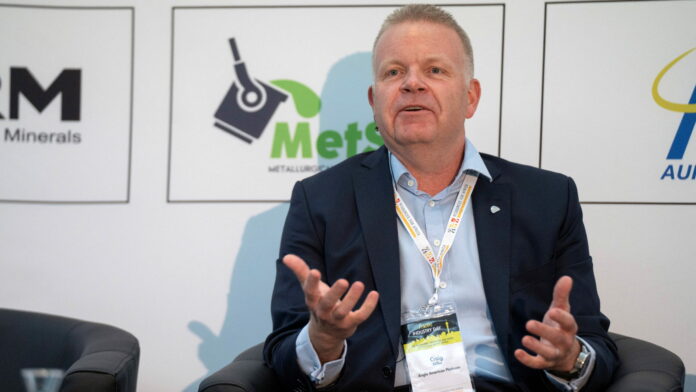
VALTERRA Platinum described a proposed chrome tax as not a balanced approach to economic development in South Africa.
Earlier this month, South Africa’s Cabinet approved an export tax on chrome concentrate to arrest the decline in the country’s ferrochrome industry.
One of South Africa’s largest ferrochrome producers, the Merafe-Glencore Joint Venture, announced it had suspended operations at its Wonderkop and Boshoek smelters after a business review. This is owing to above-inflation increases in electricity rates.
Craig Miller, CEO of Valterra, said at a presentation of the firm’s interim results today, in which the company announced an 81% decline in headline earnings, that the proposal was “very much at the early stages” but that he opposed it.
Asked by an analyst for his view on the proposal, Miller said: “Introducing a tax we believe may not necessarily create the desired outcome which the government is trying to create in terms of the beneficiation of chrome and chrome products in South Africa.”
He added the company would join the Minerals Council South Africa, an advocacy body that represents about 90% of mined production in the country, in discussing the proposal with the government’s Department of Minerals and Petroleum.
The Minerals Council South Africa said previously Cabinet’s proposal that all chrome concentrate exporters be required to obtain an export permit from the International Trade Administration Commission (Itac) would be a good idea if it would prevent illegal exports of chrome, but it should not be expanded or used to impose export quotas or restrictions on legally mined chrome.
Chrome mining has been one of the best-performing sectors in the mining industry. In inflation-adjusted terms, chrome production rose by an average of 8.4% between 1994 and 2024, and producers had consistently grown employment, according to Stats SA. In 2024, chrome exports reached a record 20.5 million tons, earning R84.6bn in export revenue.
The Minerals Council said it was disappointed that there had been no consultation with the industry or other government departments on these proposals to ensure alignment on measures that would deliver economic growth, job creation, and a sustainable mining and processing sector.
Miller also expressed caution regarding the impact of US tariffs on strategic metals and minerals following a proposed 50% hike on copper imports to the US, a measure aimed at stimulating local production and stockpiling existing inventory. The proposal follows similar efforts in gold and aluminium markets earlier this year.
So far, platinum group metals have been exempted from US tariffs. “I think there is concern out there in terms of… PGMs potentially being tariffed,” said Miller. “That’s been articulated through the decisions around copper. At the moment, we just need to continue to, you know, see what their impact will be and wait for the outcome of the review.”
“But for the moment, they’re not tariffed,” said Miller. “We have seen metal going into the US in anticipation of tariffs and in anticipation of that potentially PGMs being tariffed, but we’ll deal with it as and when it arrives,” he added.







